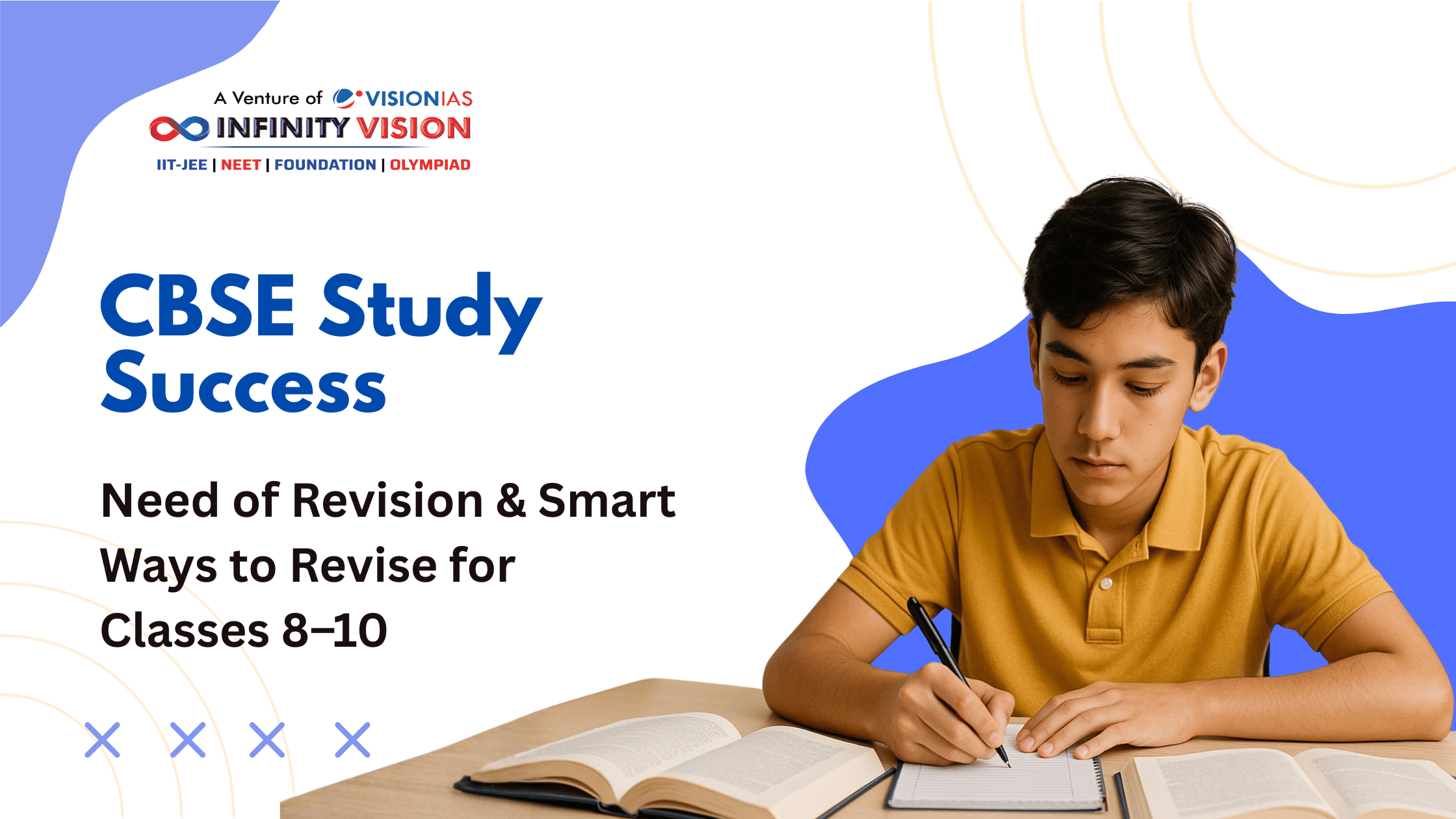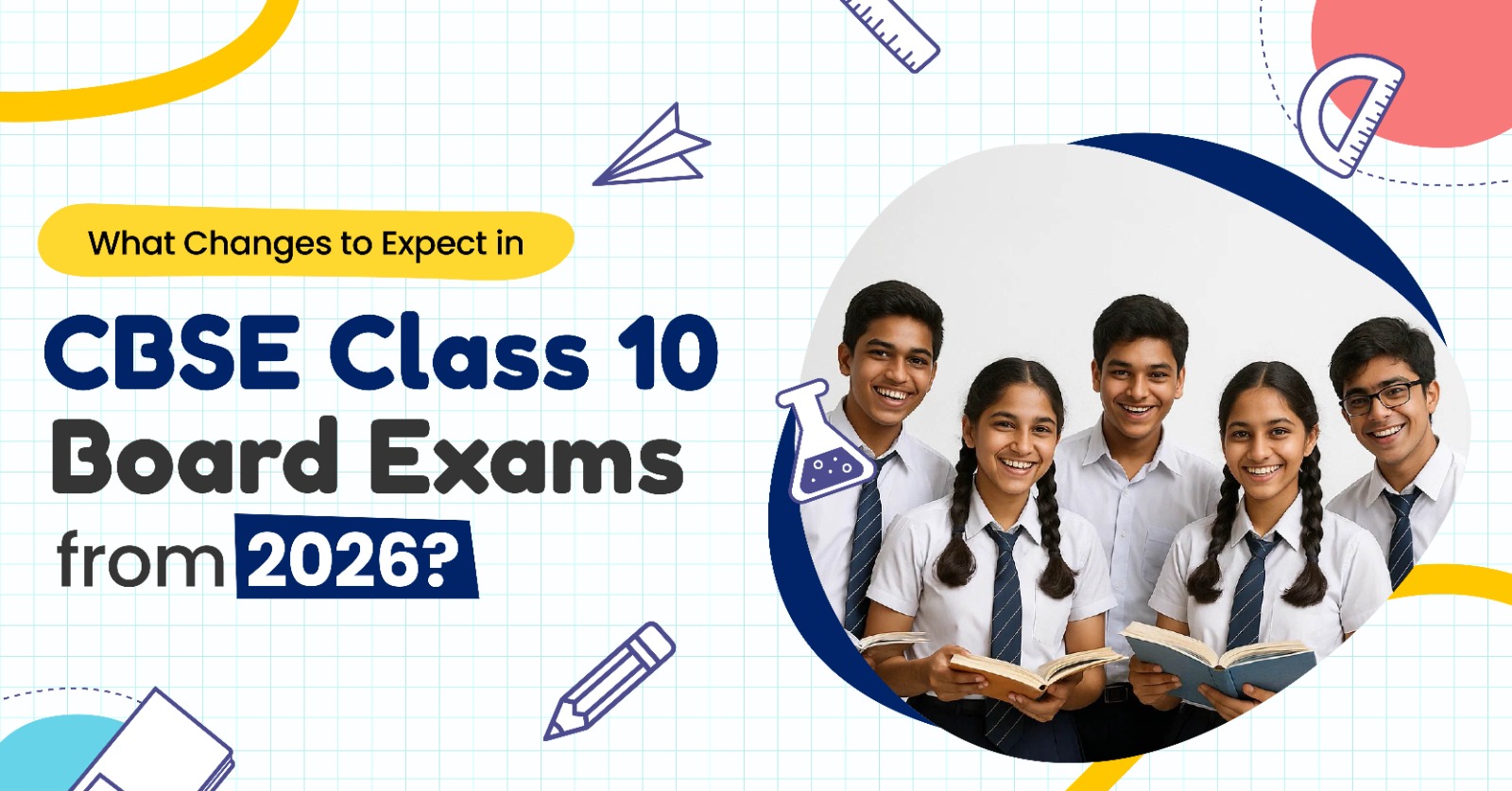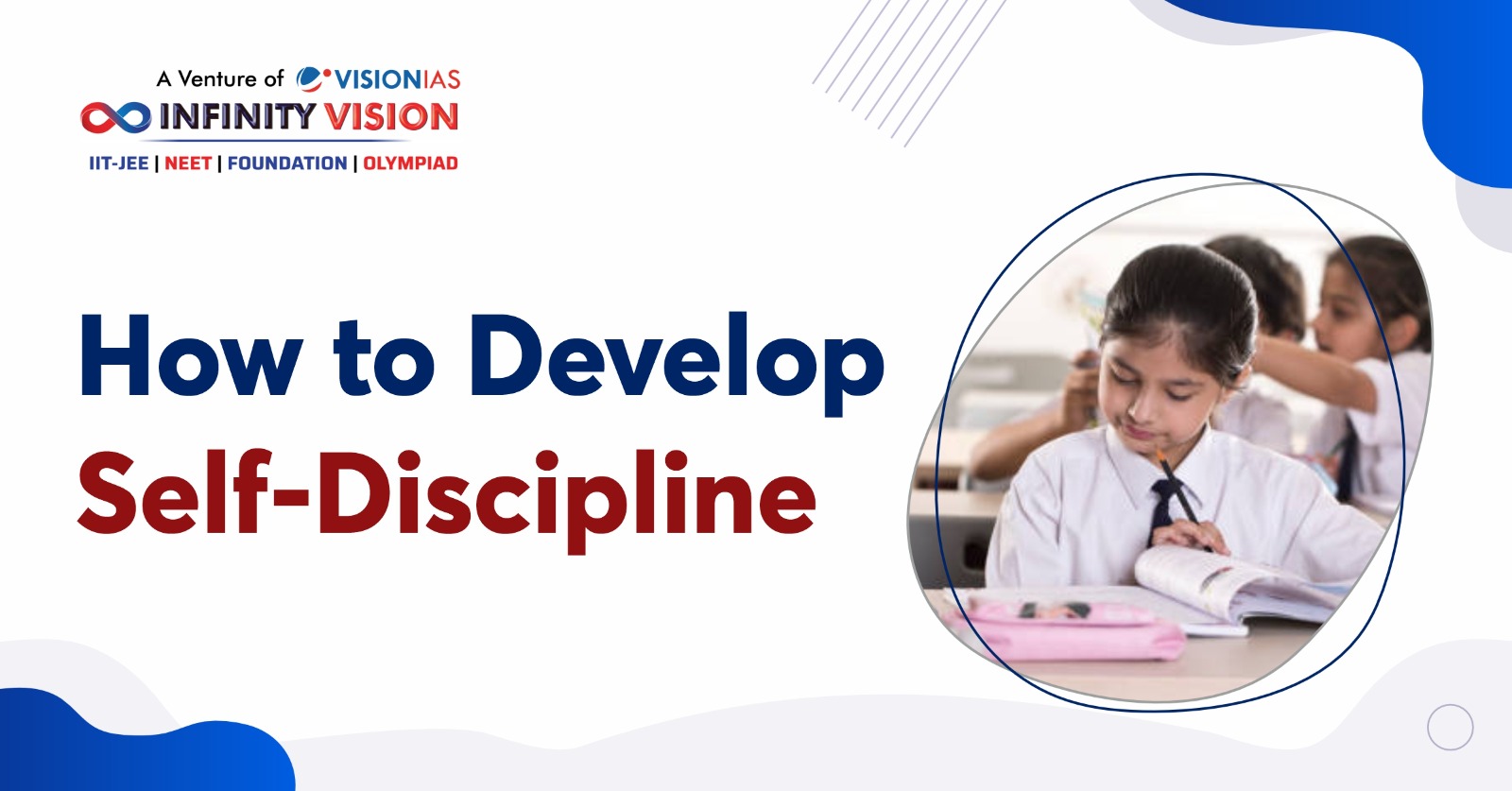
- December 1, 2025
- Board Exam Navigator
CBSE Study Success: Smart Revision Strategies for Classes 8–10
Revision is crucial for success in exam preparation. As the students advance from Class 8 to Classes 9 and 10, the CBSE Syllabus becomes more complex and concept-oriented. In order to manage such increasing volume and at the same time perform well in exams, it is important to understand the real purpose of revision. Reading ...











